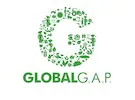25 years ago, a group of retailers and supermarkets in Europe agreed to harmonize their requirements into an independent certification system that could be broadly applied and accepted, to avoid growers having to have multiple and often redundant audits in order to supply different buyers. These retailers and supermarkets became the founding members of GLOBALG.A.P., which has evolved over the past two decades to become one of the most preferred certification programs by global retailers and markets. Currently, over 200,000 farmers in over 135 countries have been certified according to GLOBALG.A.P. standards.
 Roberta Anderson, Executive Vice President of GLOBALG.A.P. North America Inc. shares: “Beyond just being a premier standard holder for food safety, traceability and worker health and safety and environmental protection, GLOBALG.A.P. also serves the global agricultural community by offering training to producers, auditors, certification bodies and any other interested parties. In North America, the dominant sector using GLOBALG.A.P. is tree fruit, specifically cherries, apples and citrus. However, there is a wide variety of growers who choose our standards. Globally, the dominant sector is potatoes, followed by apples, pears, and cherries.”
Roberta Anderson, Executive Vice President of GLOBALG.A.P. North America Inc. shares: “Beyond just being a premier standard holder for food safety, traceability and worker health and safety and environmental protection, GLOBALG.A.P. also serves the global agricultural community by offering training to producers, auditors, certification bodies and any other interested parties. In North America, the dominant sector using GLOBALG.A.P. is tree fruit, specifically cherries, apples and citrus. However, there is a wide variety of growers who choose our standards. Globally, the dominant sector is potatoes, followed by apples, pears, and cherries.”
Convenience and security
Due to the global reach and recognition of the GLOBALG.A.P. program, farmers who are certified are able to ship their products anywhere after one audit. “Our standards allow producers and packers to streamline their audit process and decrease costs while increasing their reach to a global buying audience. We have seen growth in all segments of the market in recent years. Some growers are getting certified for the first time, while others are switching to GLOBALG.A.P. from other certification programs. Additionally, those producers who hold GLOBALG.A.P. certificates are enhancing their market access by utilizing our corporate and public add-on assessments which address additional considerations under the umbrella of good agricultural practices,” Anderson explains.
The demand for the GLOBALG.A.P. certification comes both from the growers and the buyers, Anderson shares. “Growers are choosing GLOBALG.A.P. because of our global buyer acceptance, risk-based approach, broad choice of certification body and the cost and time savings in having streamlined audits. Additionally, we offer a certification option for grower groups that is accessible and affordable for growers of all sizes. Buyers prefer GLOBALG.A.P. because of our high level of integrity, the integrated scope of subjects covered in the audit, GFSI recognition, and add-on options,” she says.
New certification offering: Produce Handling Assurance (PHA) standard
About 11% of the GLOBALG.A.P. production acreage is in the US. The growers in the US have three GFSI-recognized options for certification, one of which is a new certification offering: Produce Handling Assurance (PHA) standard. “This is a standalone post-harvest audit for pre-process activities such as cooling, sorting and packing. Growers can combine the PHA audit with either of the two farm audits available to growers in North America, which can mean time and cost savings when it comes to audits,” Anderson shares. “With this new addition, producers can now combine their farm and packing audits, further reducing associated time and costs. PHA will complete the GFSI benchmarking process this spring fulfilling requirements of major buyers in the USA and Canada,” she adds.
The biggest farm certification in the US is the Integrated Farm Assurance standard, Anderson explains. “This covers traceability, food safety, environment and worker health and safety. It is GFSI recognized and is a globally accepted certification that is available for crop, livestock and aquaculture farms, and covers some elements of post-harvest handling,” she says. The other option is the Harmonized Produce Safety Standard. “This is also a GFSI recognized farm certification, but it focuses only on food safety and traceability. It uses verbatim the language from the United Fresh GAPs Harmonization Initiative and is aligned with the FSMA Produce Safety Rule,” Anderson adds.
In North America, the producers can choose from a large pool of accredited certification bodies. Anderson says: “GLOBALG.A.P. approves over 20 third-party organizations to operate in the US nearly double the options available with other standards.”
Certifications and audits during the pandemic
Growers who are certified have to go through audits to renew their certifications every year. With the travel restrictions put in place because of the pandemic, this became more complicated last year. Fortunately, GLOBALG.A.P. found ways around these challenges. “To support the industry and ensure that there are not further interruptions in the market while making sure auditors and farmers alike are protected, GLOBALG.A.P. was quick to offer a remote audit option back in May of 2020. The GLOBALG.A.P. remote audits use available technology to conduct audits while ensuring the highest levels of integrity and assurance. Since not all buyers are willing to accept fully remote audits, we also have been working with auditors and certification bodies to implement two-part audits, where as much paperwork and records as possible are reviewed off-site, followed by an onsite visit that can be shorter in scope and duration, minimizing risk to everyone,” Anderson explains.
“The GLOBALG.A.P. North America team serves the unique needs of producers and buyers in Canada and the United States to protect their brand and mitigate their risk. We engage producers and buyers in the U.S. and around the world to define the most practical and relevant production criteria and audit systems, and deploy with the highest levels of integrity,” Anderson concludes.
 For more information:
For more information:
GLOBALG.A.P.
Email: northamerica@globalgap.org
www.globalgap.org
